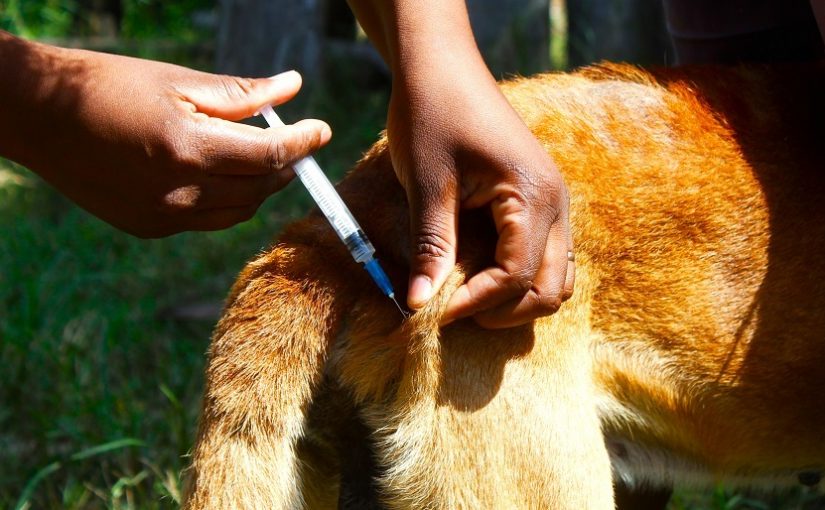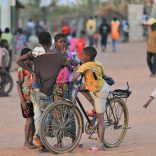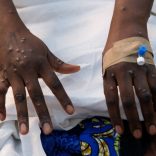UNHCR: Violence flares anew in northern Mozambique, forcing 22,000 to flee in a week
Mozambique: Rabies killed 18 people in the first half of 2022

File photo: Notícias
Eighteen people lost their lives to rabies in Mozambique from January to June this year, out of a total of 10,054 people bitten by dogs.
The figures were cited by the Ministry of Agriculture and Rural Development (MADER) on Tuesday as part of commemorations of World Rabies Day, marked on 28 September.
According to MADER, there were 23 deaths and more than 23,000 reported dog bite incidents in 2021. The situation has spurred veterinary authorities to implement mechanisms to control rabies through the vaccination of animals such as dogs and cats.
“In Mozambique, rabies is considered an endemic disease and is one of the priority zoonoses, being currently included in the National Plan for the Control of Zoonoses,” the MADER statement reveals.
Further on, the document states that, in the first half of the year, only 105,396 dogs and cats were vaccinated out of the more than 450,000 expected by the end of the year. The immunisation campaign will be intensified in the coming days.
World Health Organisation literature indicates that rabies causes some 59,000 deaths each year.
Rabies, which is transmitted by biting, is a deadly disease caused by a virus that attacks the nervous system of almost all mammals. Symptoms include paralysis of the larynx, pharynx and masticatory muscles, followed by depression, coma and, in extreme cases, death from respiratory paralysis.
By Marta Afonso
WRD 2022: One Health, Zero Rabies
World Rabies Day is celebrated each year on September 28 as a tribute to Louis Pasteur, the inventor of the world’s first effective rabies vaccine. The day is observed to promote the fight against rabies, raise awareness of its prevention, and celebrate the achievements the world has made against this deadly disease. This year sees the 16th World Rabies Day.
This year’s World Rabies Day theme is “One Health, Zero Rabies”.
“The COVID-19 pandemic has shown the stark vulnerabilities of health systems but it also demonstrated what collaboration across sectors can achieve,” World Rabies Day literature proclaims.
“Rabies control programmes offer a great example for One Health implementation and the structures and trust that underpin these are crucial for other zoonotic diseases, including those that are pandemic-prone.
“The world has the vaccines, medicines, tools, and technologies to break the cycle of one of the world’s oldest diseases.
“Zero by 30: Global Strategic Plan for the elimination of dog-mediated human rabies deaths by 2030 is an ambitious document with achievable targets. It is aligned with the new NTD roadmap that prioritises integrated interventions and mainstreaming of NTD programmes within national health systems.
“The integrated approaches advocated in both the Global Strategic Plan for rabies and the road map are relevant, as they show the importance of working together optimally and collaboratively in face of numerous challenges, as experienced during the current COVID-19 pandemic.
“It is therefore critical to work with stakeholders, champions, and people at community, local, national, and global levels to rebuild and strengthen health systems and rabies control programs.”
Today is #WorldRabiesDay! Rabies is a vaccine preventable disease, with most victims being children in poor communities in Africa & Asia.
🐕 are the main source of human rabies deaths, contributing up to 99% of all rabies transmissions to humans.
Let’s vaccinate & save lives! pic.twitter.com/7BKLL1uxgq
— WHO African Region (@WHOAFRO) September 28, 2022
Vaccinating 70% of dogs in at-risk areas, can eliminate canine #rabies. Spread awareness this #WorldRabiesDay and let’s reach #ZeroBy30. https://t.co/fJWFq7pynI. #OneHealth #WRD2022 #1health4rabies pic.twitter.com/ArFVmjOpuR
— SBC Public Health (@SBCPublicHealth) September 29, 2022
For #WorldRabiesDay tomorrow, let’s remember that #rabies affects mostly children 🧒 👦 👧 in developing countries.
Protect our youth, protect our future. Don’t hesitate, vaccinate dogs against rabies!
💉 🐕 💉 🐕 💉 🐕 💉 pic.twitter.com/MZJdLv87Op
— World Organisation for Animal Health (@WOAH_Global) September 27, 2022













Leave a Reply
Be the First to Comment!
You must be logged in to post a comment.
You must be logged in to post a comment.